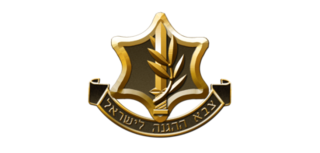
On June 3, 2013 the Mandel Leadership Institute hosted an evening on "Country, City, Army: IDF Commanders and Israel’s Educational Challenges", as part of the Bimat Mandel (Mandel Platform) series. Following a welcome from Dr. Eli Gottlieb, director of MLI, opening remarks were delivered by
Brigadier General Eli Shermeister, outgoing IDF Chief Education Officer; and Dr. Chava Shane, director of the Mandel IDF Educational Leadership Development Program. Afterwards, a panel was held regarding the educational challenges faced by the IDF, featuring three speakers:
Amos Harel, military correspondent for Haaretz;
Brig. Gen. Orna Barbivai, IDF Manpower Head; and Prof. Moshe Halbertal, professor of Jewish thought and philosophy at the Hebrew University of Jerusalem and faculty member of the Mandel Leadership Institute.
Amos Harel chose to address the inter-relationships and reciprocal influences between army and society. According to Harel, the army molds society; this is evident from the large number of retired army personnel in Israel’s political life and from the media’s intensive news coverage of all things military. On the other hand, society also influences the army, as is evident from the issues at the heart of the Bimat Mandel evening: parent-army relationships, the army’s relationship with weaker populations, and so on. Harel describes the processes taking place in the army as “bottom-up processes” that often are not expressly addressed by the highest military echelons. For example, service in IDF combat units is to all intents and purposes voluntary – no-one is forced to be a combat soldier against his or her wishes. But although this is a prominent phenomenon in the army, it is not the result of official IDF policy. Another trend that raises large challenges is that the army takes upon itself many more roles than in the past, and more than “would seem reasonable in any normal society”. Examples include the IDF’s religious conversion enterprise and the special IDF provisions for soldiers from weaker socio-economic populations.
Brig. Gen.
Orna Barbivai was asked the question, “In order to understand the way IDF commanders cope with the issues under discussion, what is important to take into consideration?” She chose to address the fact that the IDF is a people’s army. According to Barbivai, Ben Gurion’s conception of “the people’s army” (a term that he coined) is equally valid in our own era. The army still adheres to the concept not because of the PR value of the phrase, but because the army understands that the interface between it and society creates mutual empowerment – of the army and society as one. Barbivai believes that the “army of the people” concept contributes to the robustness of Israeli society, and that the army is, perhaps, the last remaining symbol of mutual social responsibility in Israel.
Prof. Moshe Halbertal answered the question, “Education in the IDF: What is important for us to remember?” According to Halbertal, soldiers today carry a “heavier moral burden” than they did in the past. Whereas once only a select few in the IDF were required to make ethical decisions, in today’s micro-warfare reality large numbers of soldiers must cope with ethical questions as a matter of course.
Halbertal poses two central educational questions regarding the military endeavor. One is about the large gap between the “language of the mission” – the language of values and ideals framing the mission on which the soldier is sent, a mission that may cost him his life – and the reality he encounters in the mission: lack of equipment, assignments that are not defined properly, or a commander of unsatisfactory professional level. Halbertal argues that when the soldier encounters reality, he undergoes a process he calls “narrowing of the moral horizon” – the soldier is forced to reduce his level of loyalty to that of loyalty to his comrades-in-arms. According to Halbertal, this gap between the language of mission and reality is most harmful to the souls of young idealists.
The second educational question concerns coping with complex moral issues: how to inculcate in soldiers the practical wisdom and due discretion they need, beyond all the usual rules and regulations – practical wisdom that takes common sense into account, as well as the complexity of real-life situations. In the language of Halbertal’s Yiddish-speaking father, we are referring to the difference between intelligence and seichel(“smarts”)…
After the panel, the participants split up into groups in which the fellows of the Mandel IDF Educational Leadership Development Program presented the products of their work on several educational challenges in the IDF:
- Parental involvement in the IDF
- Work ethics in technological units
- Working with soldiers from underachieving backgrounds
- Commanders dealing with religious soldiers
- The technological educational crisis and the IDF
- Education in the IDF.
One of the respondents summed up the gist of the IDF educational dilemma in the following pithy comment: “The commander must represent the School of Hillel as well as the School of Shammai. The School of Shammai always asks, What’s the right answer? But the educator from the School of Hillel says, Who’s asking the question?”
